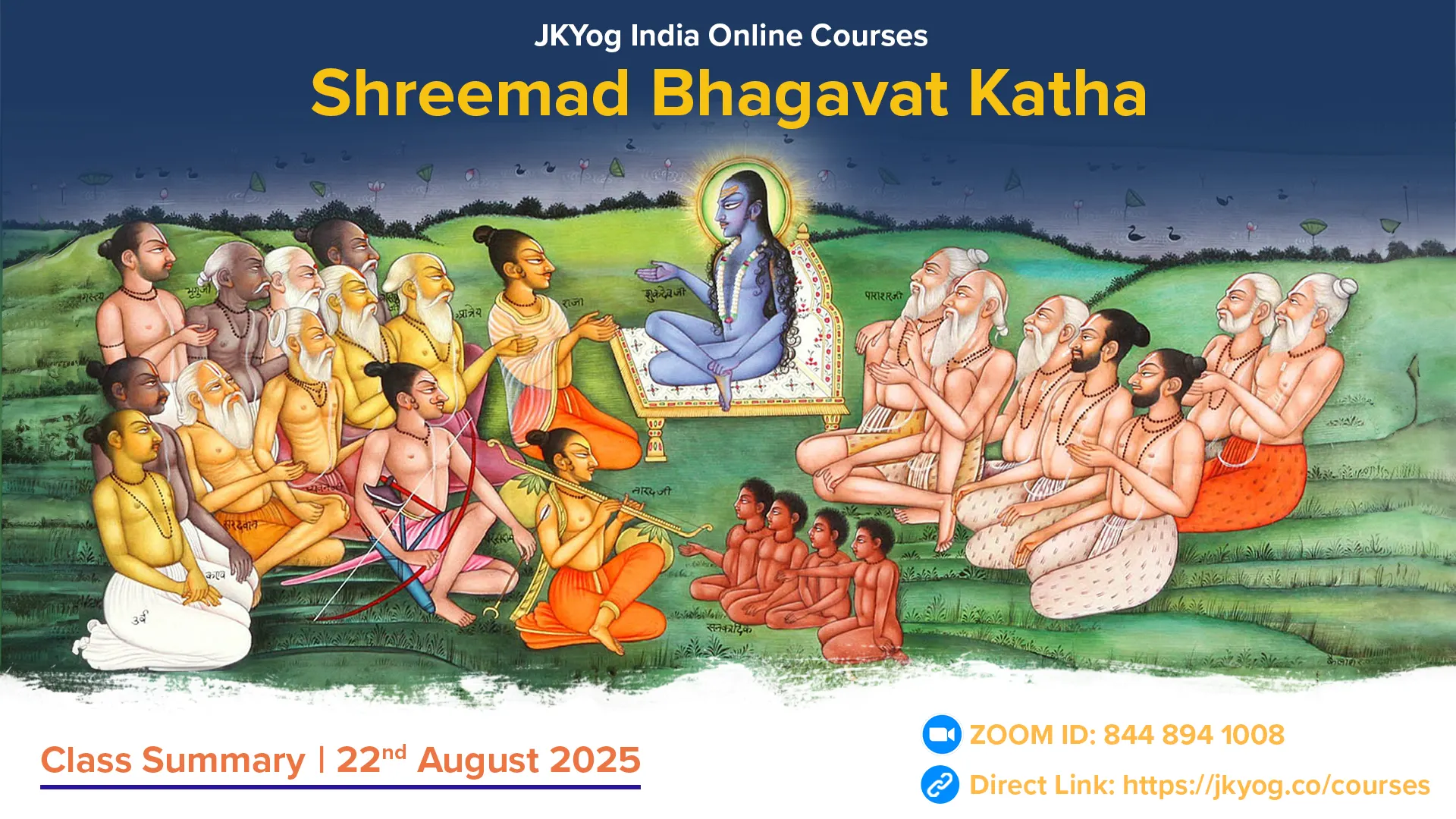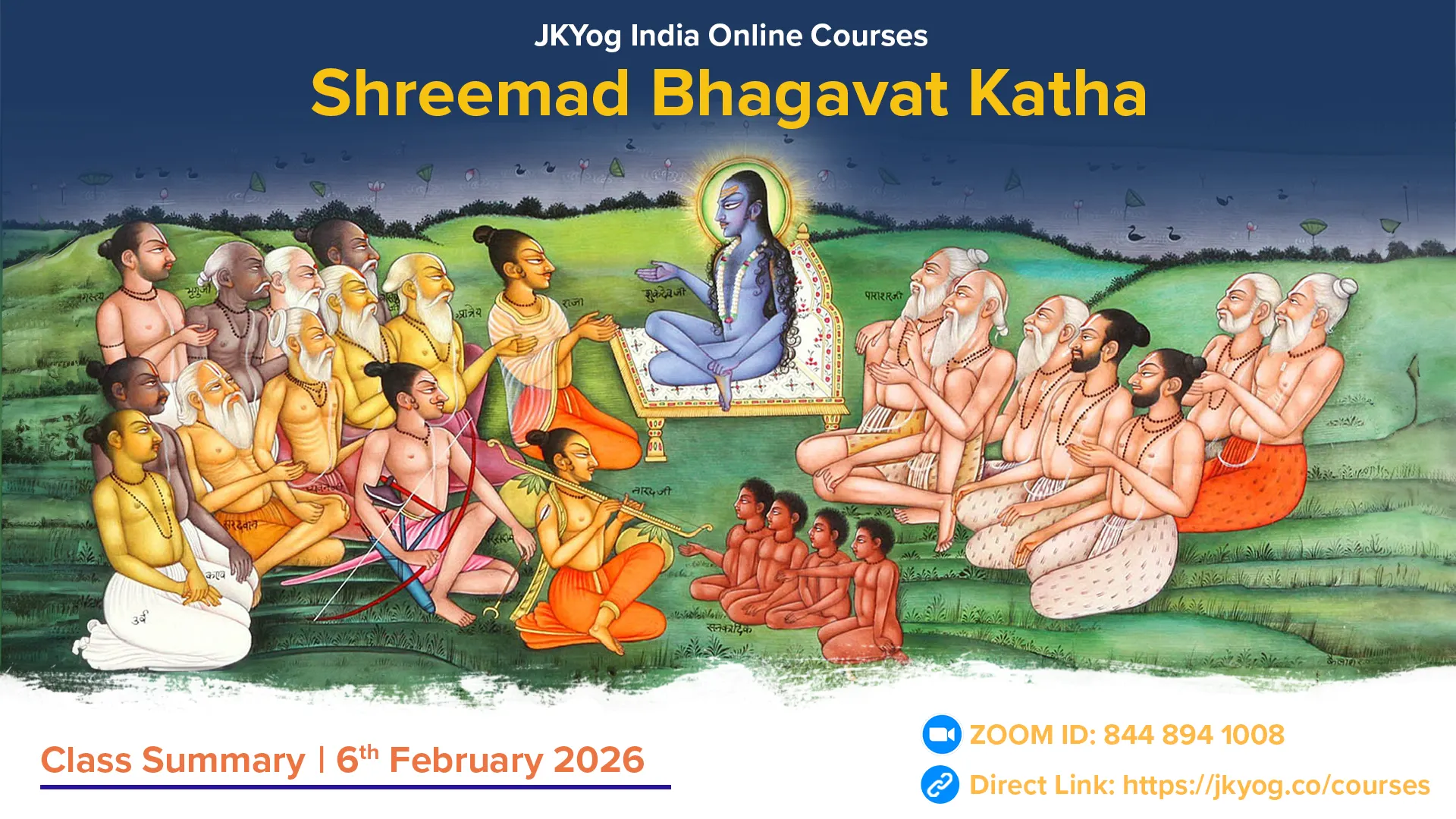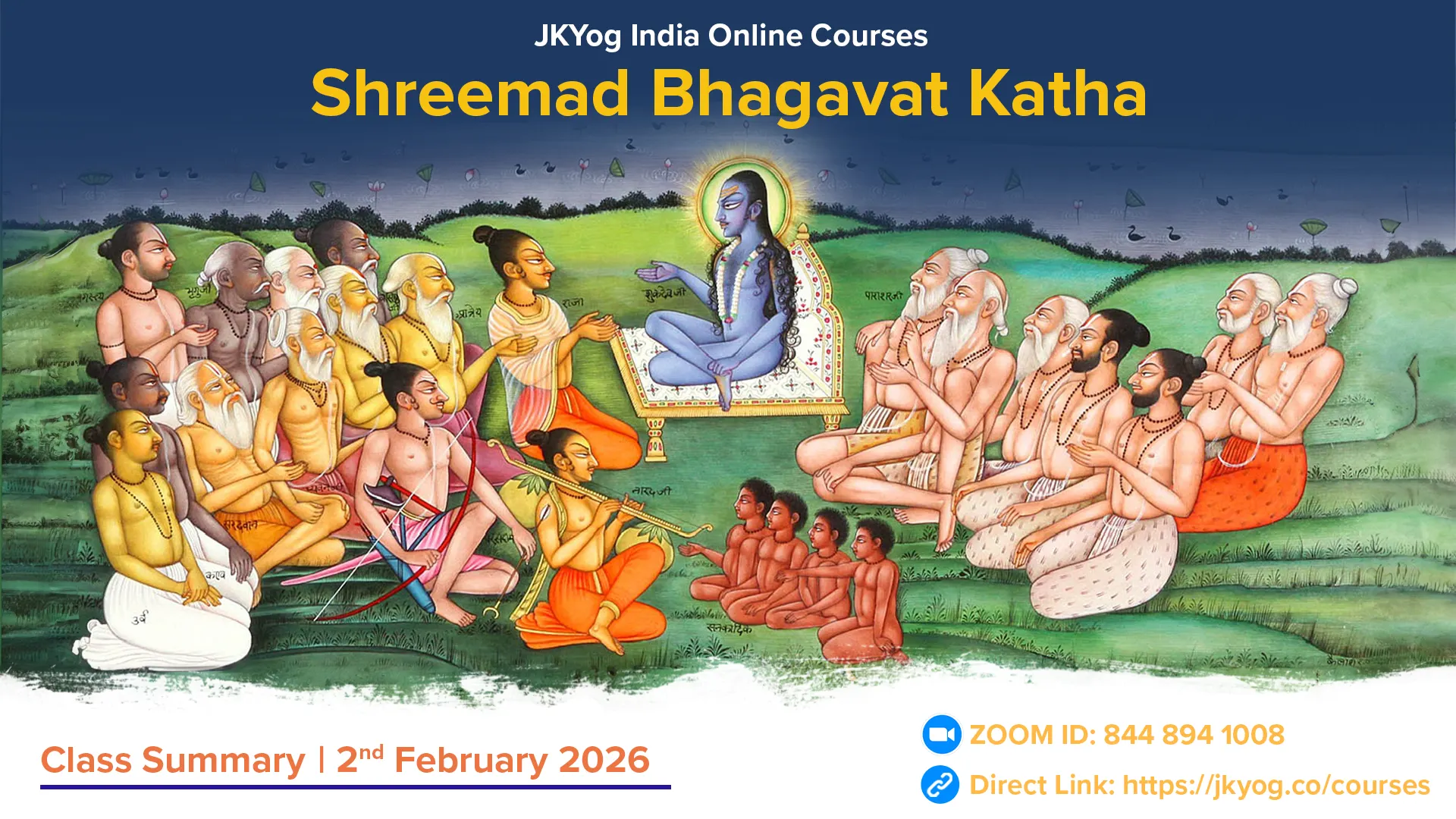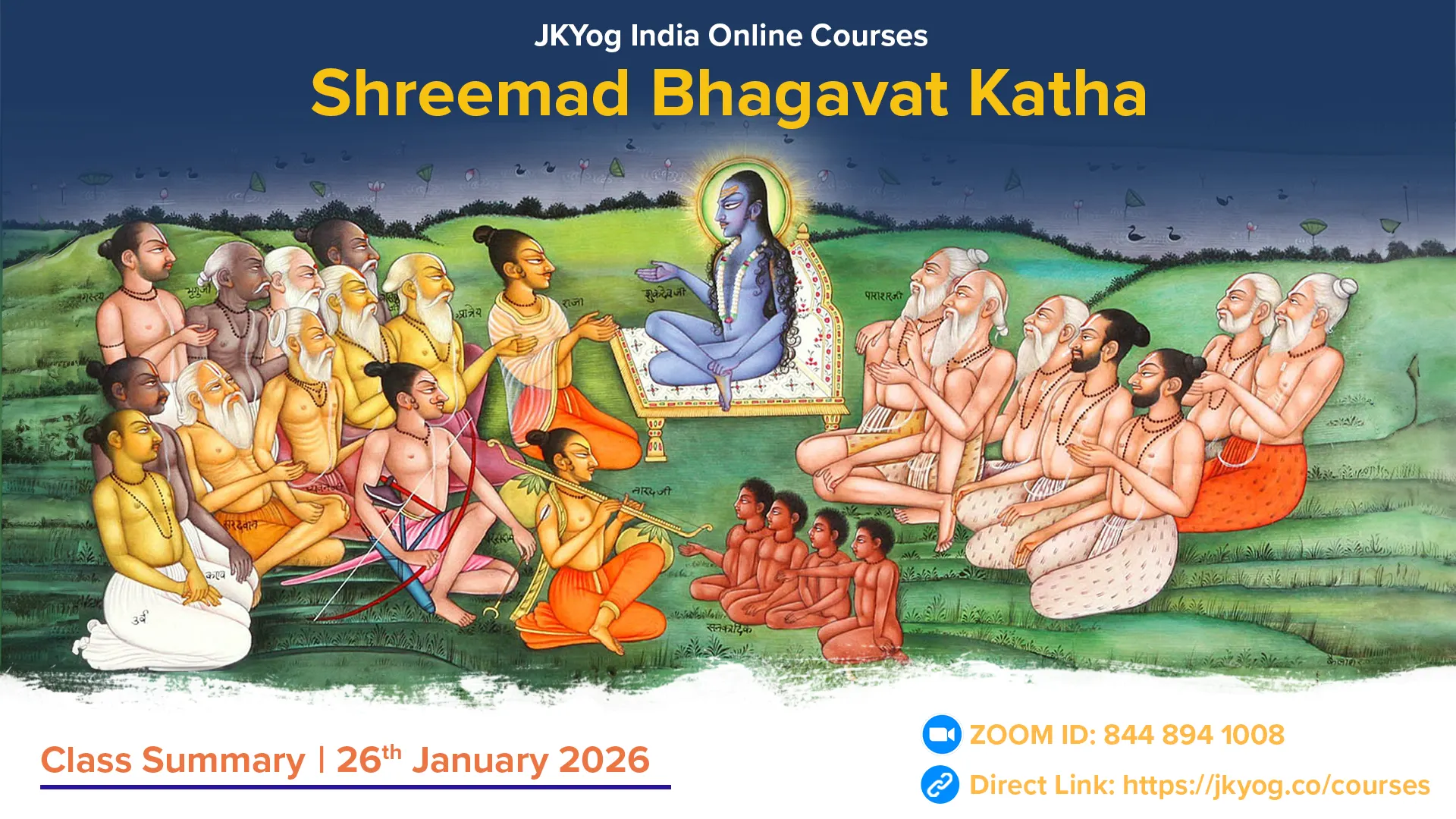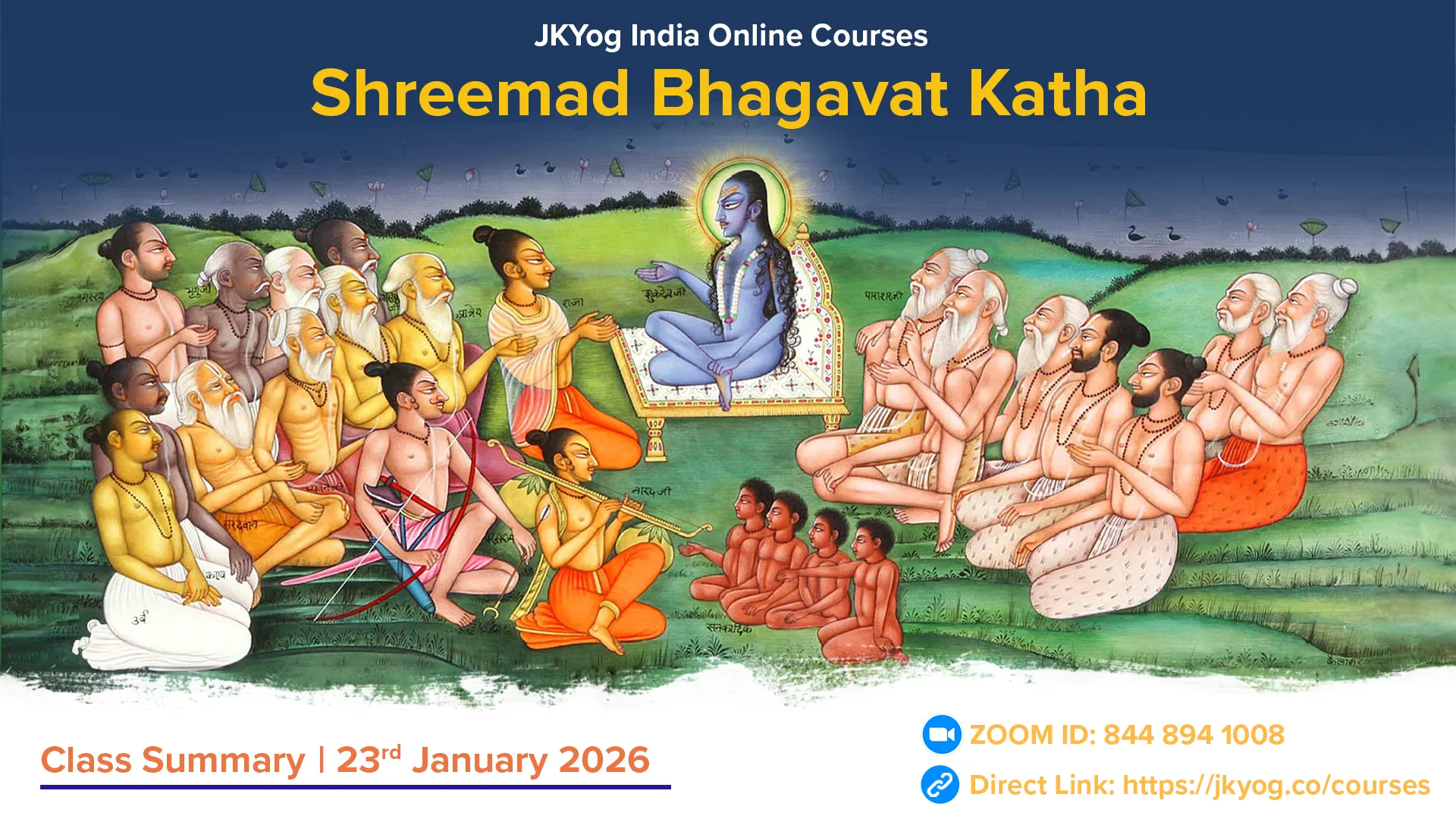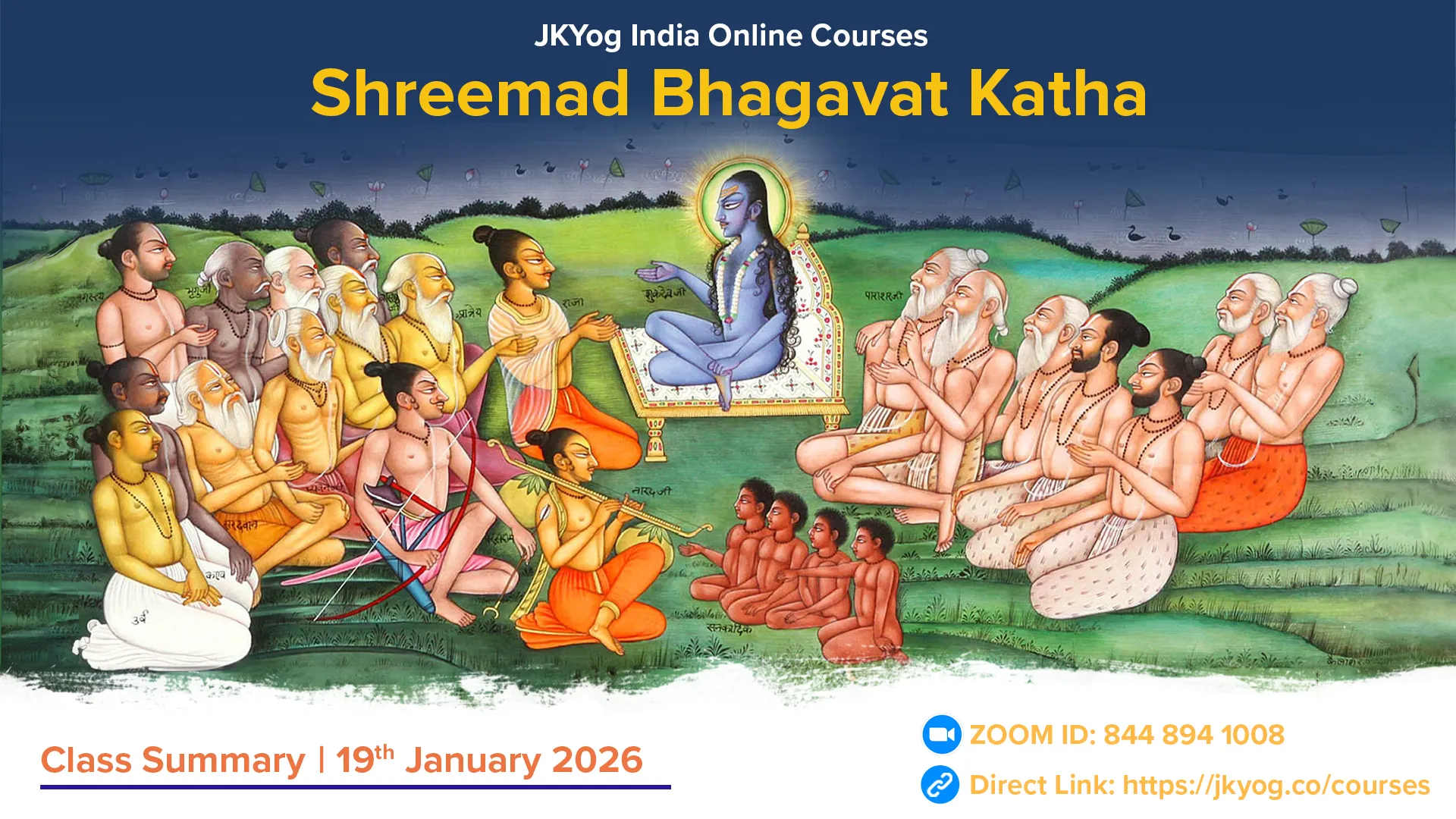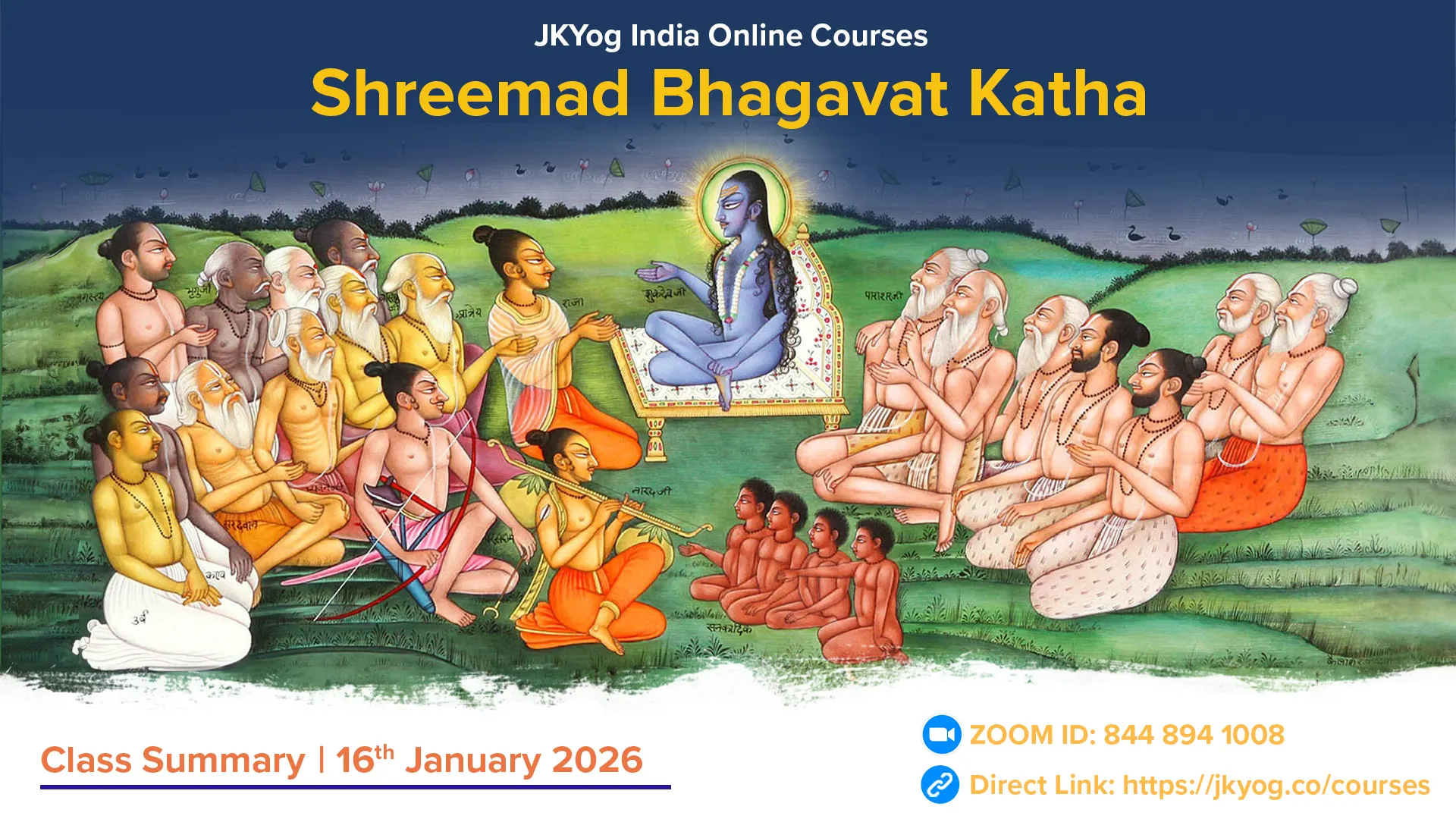Shreemad Bhagavat Mahapuran- Canto: 9, Chapters: 10
Shree Shukdevji says, “O Parikshit, in the illustrious lineage of Ikshvaku, King Khatvanga’s son was Dirghabahu. His radiant son was Raghu, from whom came Aja. From Aja was born the noble King Dasharath. At the prayer of the devas, the Supreme Brahman, Bhagwan Shree Hari Himself, descended in the form of Dasharathji’s four sons—Ram, Lakshman, Bharat, and Shatrughna.”
To uphold the word of His father, Dasharathji, Shree Ram graciously accepted exile in the forest. His lotus feet were so delicate that even the soft touch of Sita Mata’s hands caused Him discomfort. Yet those very feet bore the piercing thorns and rugged stones of the forest. When weariness overcame them, Lakshman and Hanumanji would tenderly massage them with devotion, easing their fatigue.
In the service of Sage Vishwamitra, Shree Ram, accompanied by Lakshman, vanquished the mighty rakshasas like Marich, who sought to disturb the sacrifice. Later, in Janakpuri, the swayamvar of Sita Mata was held. There, the colossal bow of Bhagwan Shankar was placed, which countless kings and warriors together could not lift. Shree Ram lifted it effortlessly, strung it, and broke it in twain. Thus, He won the hand of Sita Mata in marriage.
On returning to Ayodhya, they encountered Parashuram, the fierce Brahmarshi who had emptied the earth of kshatriyas again and again. Yet beholding the divine brilliance and unmatched humility of Shree Ram, his pride melted away, and his wrath was pacified.
Soon after, due to the boon granted to Kaikeyi, Dasharath was bound to send Shree Ram into exile. In obedience to His father’s word, Shree Ram renounced the throne and the comforts of royalty and departed to the forest with Sita Mata and Lakshman. There, He humbled the arrogance of Shurpanakha. When her brothers, Khara and Dushan, came with fourteen thousand rakshasas to avenge her insult, Shree Ram annihilated them all with ease.
Hearing of Sita Mata’s unparalleled beauty, Ravan was ensnared by lust. In deceit, he sent Marich in the guise of a golden deer. While Shree Ram pursued it and Lakshman was drawn away, Ravan abducted Sita Mata in their absence and carried her away to Lanka.
Stricken with grief, Shree Ram wandered through the forests with Lakshman, searching for His beloved. On finding the noble bird Jatayu slain in his attempt to rescue Sita Mata, Shree Ram performed his funeral rites with deep compassion. Thereafter, He forged a friendship with Sugriv, slew Bali, and secured the service of the Vanara army.
Upon reaching the seashore, when His prayers to the ocean bore no response, Bhagwan Ram manifested His righteous wrath. Trembling with fear, the ocean god appeared before Him, offering prayers, “O Infinite One! Please build Your bridge upon me to reach Lanka, so that Your glory may be sung for all time.”
Then, by the devotion of the vanaras, mountains and rocks were cast upon the ocean, and the mighty Setu was completed. The Vanara army crossed into Lanka, laying waste to its groves, palaces, and forts.
The Great War began. Ravan sent forth his formidable generals like Nikumbh, Kumbh, Dhumraksha, Atikaya, Meghnad, and even the gigantic Kumbhakarna. Yet all fell before Shree Ram and His valiant companions Lakshman, Hanuman, Sugriv, Angad, Jambavan, and others.
At last, Ravan himself came forth to the battlefield. At that moment, Indra’s charioteer, Matali, descended with a celestial chariot for Shree Ram. A dreadful duel ensued between the Lord of Ayodhya and the ten-headed tyrant. Then Shree Ram, drawing His bow with supreme might, released a blazing arrow that pierced Ravan’s heart. The demon-king fell lifeless, and his reign of terror ended.
The rakshasa women wailed in anguish, crying, “Alas, O master! Your lust and arrogance have destroyed our entire clan. Though you possessed every prosperity, blinded by desire, you embraced ruin.”
Shree Shukdevji continued, “O Parikshit, at the command of Bhagwan Ram, Vibhishan performed the funeral rites of his brother. Thereafter, in the Ashok Vatika, Shree Ram found Sita Mata, weakened by sorrow. With boundless love and compassion, He accepted her back. He enthroned Vibhishan as the king of Lanka, and, boarding the Pushpak Viman, returned towards Ayodhya.”
On the way, the devas showered flowers from the heavens in jubilant praise. Bharat, who had been dwelling in Nandigram with matted locks, clad in bark garments, sustaining himself only on barley gruel, came with the ministers, citizens, and the wooden Padukas of Shree Ram placed upon his head, to welcome Him.
On beholding Shree Ram, Bharat’s heart overflowed with devotion. He fell at His lotus feet, weeping with love. Shree Ram lifted him with affection and embraced him tenderly. In Ayodhya, Mother Kaushalya and the other mothers shed tears of joy, beholding their beloved sons after long years.
Then the venerable Sage Vashishtha performed the abhishek of Shree Ram with waters from the four oceans and many sacred rivers. Enthroned as king, Shree Ram ruled His people with the affection of a father for his children.
In Shree Ram’s reign, the people were free from sorrow, disease, and untimely death. The forests, rivers, mountains, oceans, and the very earth yielded abundance, as though each had become a wish-fulfilling cow. Indeed, it seemed as if the Satya Yug had returned within Treta itself.
Shree Ram observed lifelong fidelity to one wife and upheld the sacred ideals of household life, establishing the supreme example for all humanity. Sita Mata, with her service, modesty, affection, and virtue, captivated His heart. Thus, their divine lives stand as an eternal ideal for the world.
Summary: JKYog India Online Class- Shreemad Bhagavat Katha [Hindi]- 22.08.2025

